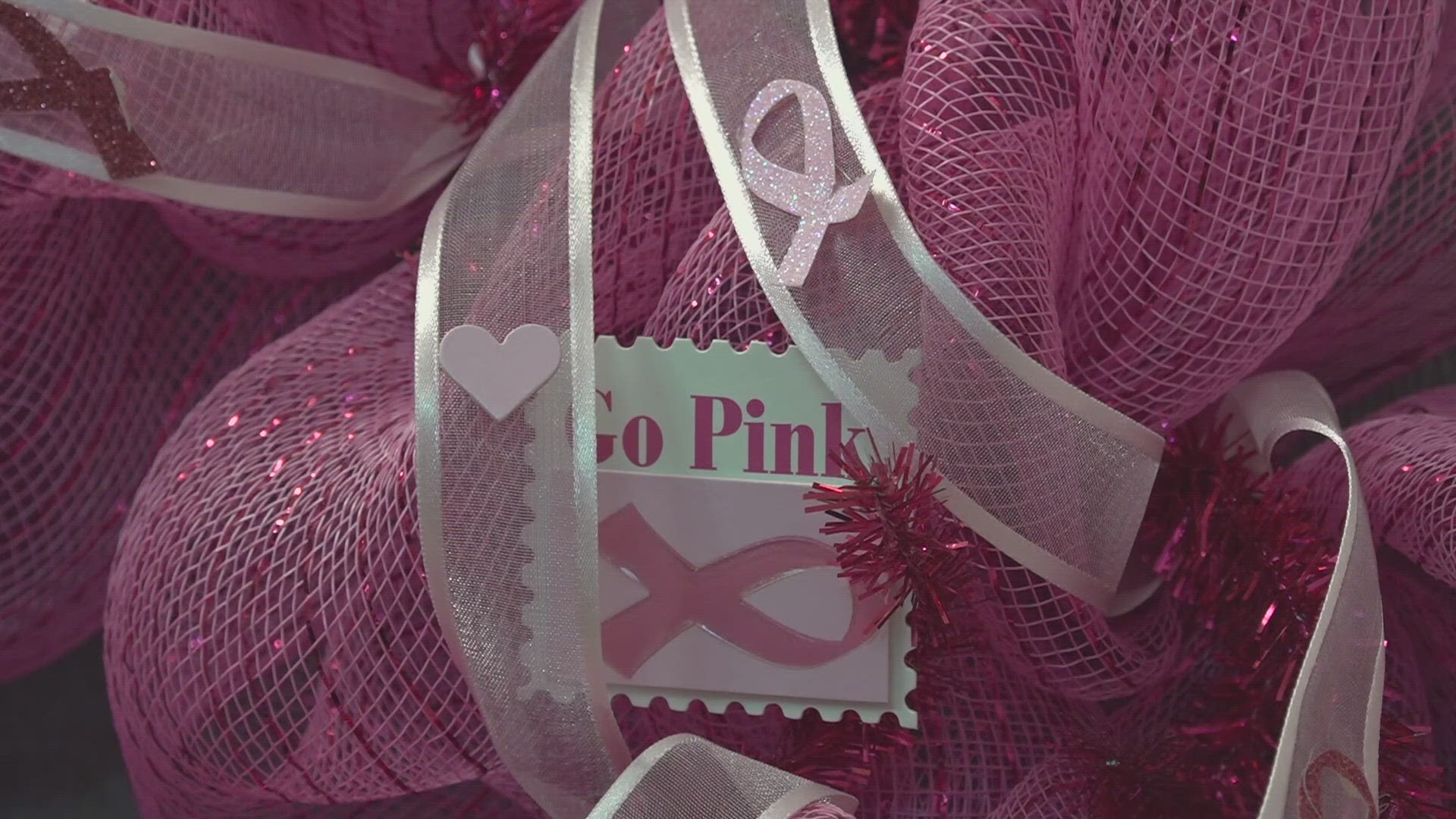ST. LOUIS — Oct. 1 is the official start of breast cancer awareness month.
The month marks the start of a global campaign to increase knowledge and support people affected by the disease.
5 On Your Side spoke with a Mercy Hospital Breast Surgeon to discuss facts, myths and treatments.
It's a month that's equated with the color pink and empowerment.
Every October Breast Cancer awareness month aims to promote the screening and prevention of the disease, which affects 1 in 8 women in the U.S. every year.
According to Dr. Cara Hahs, a breast surgeon at Mercy Hospital in St. Louis, breast cancer is the number one cancer in women.
"When you've got something that affects so many people, we definitely need to be proactive in our health care, make sure people understand what is available for screening," she said.
It's something that's been a passion of Dr. Hahs for over two decades.
"We need to be good, as women, and take care of ourselves because we're really good at taking care of our families and everybody around us all of the time, but we do have to pause and take care of ourselves sometimes, and this is one way to do it; go get your mammogram," she said.
Dr. Hahs wants to remind women the importance of early detection and that a mammogram is the easiest way to get that done.
"Since we started doing routine screening mammograms in the 1980's, the death rate from breast cancer has dropped dramatically," she said.
That routine should start around 40 years old, according to Dr. Hahs. Then, women should get annual mammograms between 45 and 65.
"Just a mammogram can detect super early cancers. If you detect it super early, it is super treatable," she said.
Dr. Hahs has watched treatments improve drastically over the past 20 years as a breast surgeon, even with the most aggressive forms of the disease.
"Our ability to treat different types of breast cancers has expanded our understanding of what we need to pay attention to," she said.
Like anything, there are a couple of myths doctors want to debunk about breast cancer.
First, contrary to popular belief, according to Dr. Hahs only 5 to 8% of breast cancers are related to a family gene.
"Please don't let a lack of family history keep you from getting your mammogram, because most people with breast cancer actually don't have a strong family history," she said.
Second, it is not dangerous to get a mammogram, according to Dr. Hahs.
"The amount of radiation is actually very small. You will get more radiation flying in a plane across the United States than you will get from a mammogram," she said.
Third, Dr. Hahs said having a mastectomy does not mean that your cancer won't come back.
"It's important to have those discussions with your doctor about what am I a candidate for, and then understand what's going on and decide the pathway that makes the most sense for you," she said.
It's a pathway that is different for everyone, but Dr. Hahs said you can get on the other side of it.
"When you don't know what's going on, that is super anxiety-provoking. The not knowing is super hard and so when you hear those words, the first thing that you need to do is just pause and think to yourself, 'This is super treatable. My health professionals do this all the time and they're going to have really good treatments for me,'" she said.
Dr. Hahs said there's no data that says here is one thing you can do to prevent breast cancer, but like any disease, making healthy lifestyle choices including exercise and diet can help decrease your risk.
The Mercy Breast Center is opening additional slots for screening mammograms on Saturday, Oct. 14.
There will be 60 appointment slots at the Tower A Breast Center and another 60 slots at the Clarkson and Clayton Breast Center.
The screenings will take place between 8:10 a.m. to 11:30 a.m. by appointment only.
Anyone interested can visit here and search mammogram to find the location nearest you and schedule online. You can also call 314-251-6300.

